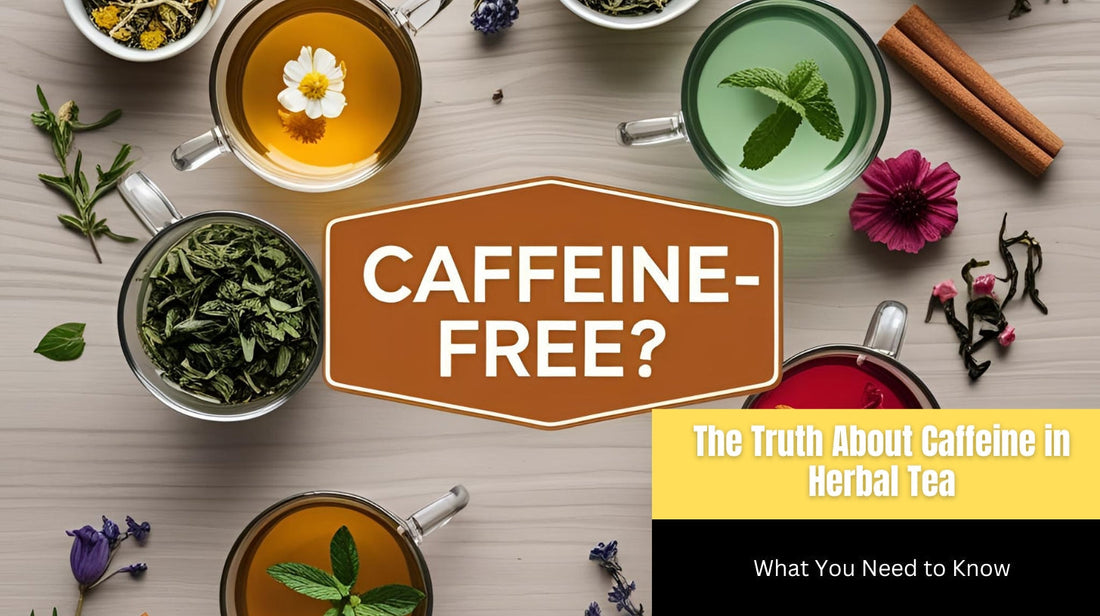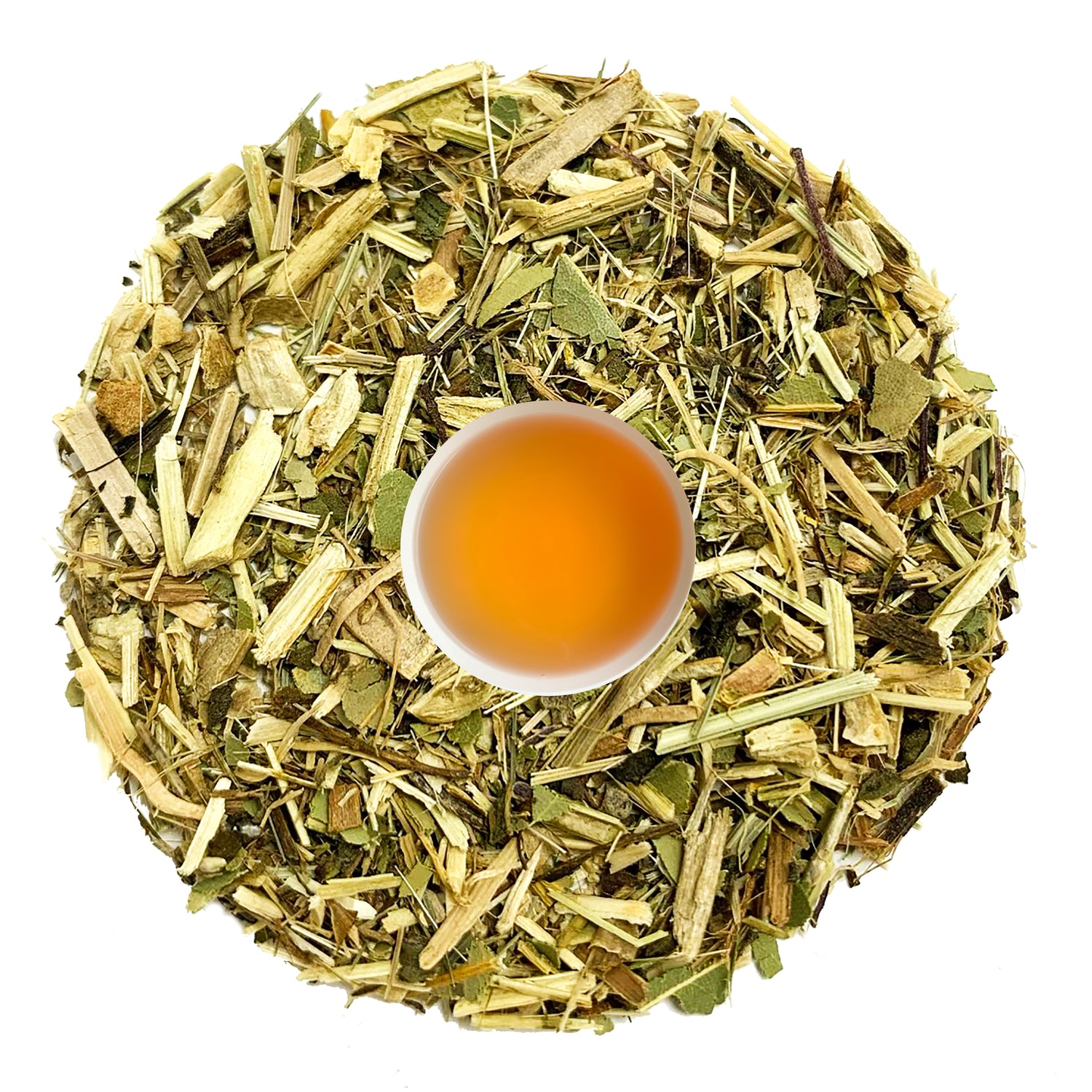
The Truth About Caffeine in Herbal Tea: What You Need to Know
Caffeine-Free or Just a Myth?
You reach for a warm cup of herbal tea thinking, “No caffeine, no worries.” But then your eyes feel wide open at midnight, and suddenly you’re wondering—was there caffeine in that?
Welcome to the murky world of caffeine in herbal tea. While herbal tea is often marketed as a zero-caffeine option, not all blends are created equal. Let’s get to the bottom of what’s really in your teacup.
What Exactly Is Herbal Tea?
Herbal tea isn’t technically “tea” at all. True tea comes from the Camellia sinensis plant (think green, black, oolong, and white tea). Herbal tea, on the other hand, is made from flowers, herbs, roots, spices, or fruit, and usually doesn’t contain actual tea leaves.
Common herbal tea ingredients:
- Chamomile
- Hibiscus
- Rooibos
- Mint (like spearmint or peppermint)
- Moringa
- Ginger
- Turmeric
So... Is Herbal Tea Caffeine-Free?
Usually, yes—but not always.
Most pure herbal teas do not contain caffeine, but blends that mix herbs with traditional tea leaves (like green or black tea) do.
Watch out for:
- Yerba mate – Naturally caffeinated.
- Guayusa – A lesser-known Amazonian leaf with a decent caffeine punch.
- Blended teas – Some “herbal” teas include black or green tea for flavor or function.
Always check the label, especially if you’re sensitive to caffeine.
Herbal Teas That Are 100% Caffeine-Free
Looking to sip without the buzz? Here are some herbal teas that are completely caffeine-free:
- Chamomile – Known for its calming and sleep-supportive benefits.
- Peppermint – A refreshing, tummy-friendly brew.
- Moringa – Nutrient-packed and great for daily wellness. Try Danfe Moringa Tea for a clean, earthy taste.
- Hibiscus – Tart, vibrant, and loaded with antioxidants.
- Rooibos – A South African favorite, mild and slightly sweet.
- Lemon balm – Great for anxiety and digestion.
Why Choose Herbal Tea Over Regular Tea?
Besides going caffeine-free, herbal teas offer a ton of health perks:
- Better sleep support
- Soothes digestion
- Rich in antioxidants
- No jitters or caffeine crash
Whether you’re winding down after work or hydrating all day, herbal teas are a gentle, comforting choice.
| Buy Danfe Herbal Teas |
Herbal Tea and Caffeine Sensitivity
If you:
- Get jittery from coffee
- Have trouble sleeping
- Are pregnant or breastfeeding
- Deal with anxiety or heart palpitations
...then choosing the right herbal tea matters.
Go with pure herbals like chamomile, hibiscus, or moringa. Stay away from sneaky caffeinated blends like yerba mate or guayusa unless you're specifically seeking a buzz.
Decaf vs Herbal: Are They the Same?
Nope. Decaf tea is real tea (black or green) that’s been processed to remove most—but not all—of its caffeine.
Herbal teas, on the other hand, usually never had caffeine to begin with. They’re naturally caffeine-free. That’s a key difference.
Want a caffeine-free tea you can truly trust? Sip smart with Danfe Herbal Teas or Danfe Hibiscus Green Tea for a flavorful, feel-good brew.
FAQs
Q: Is green tea herbal?
No, green tea comes from the tea plant and contains caffeine.
Q: Can kids drink herbal tea?
Yes—many herbal teas like chamomile or mint are kid-safe. Avoid strong detox or stimulant blends.
Q: Can herbal teas help with anxiety or sleep?
Yes! Chamomile, lemon balm, and lavender teas are great for calming the mind.
Q: Is moringa tea caffeine-free?
Yes. Try Danfe Moringa Tea for a nutrient-packed herbal option.
Q: Are fruit teas caffeine-free?
If they’re made only with dried fruits and no actual tea leaves, then yes.
Final Sip
Herbal tea can be the soothing, caffeine-free friend you’re looking for—if you read the label. Not all "herbal" teas are truly caffeine-free, but once you know what to look for, your tea journey becomes a lot more relaxing.
So next time you’re curling up with a cup before bed or just skipping coffee for the day, choose wisely—and enjoy every sip.










